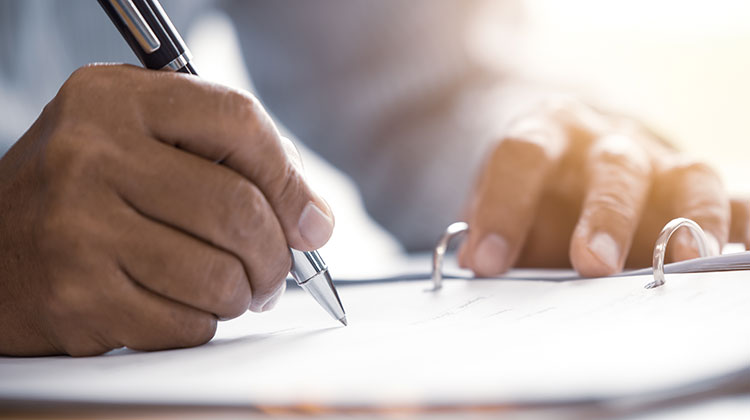
When it comes to estate planning, writing a will is one of the most important things you can do. A will ensures that your assets are distributed according to your wishes after you die.
An essential aspect that will need to be done is appointing an executor to help out with this. While an executor insurance policy is not a legal requirement to have, executors should consider getting one to help protect themselves and the beneficiaries once claims against the estate have materialised after distribution.
If you have not written a will, maybe now is the time to do so. Here are some tips and considerations when writing one:
Draw up a List of Your Assets
Your estate is everything you own, your house, savings, stocks and investments, and anything else of value. Even the debts you owe are part of your estate. You will need to list all your assets and their estimated value. This will be helpful for you and your lawyer when it comes to drafting the will.
If you die without a will, the state will step in to determine how your assets will be distributed. Writing a will may not be pleasant to think about, but it is one of the most important things you can do to protect yourself and your loved ones.
The thing to consider while setting up the value of your estate:
- The current value of your assets
- Future growth of your assets
- Inflation
- Taxes
All these factors matter while setting up the value of your estate because they will affect how much your heirs will ultimately receive.
Choose an Executor
Your executor is the person who will be responsible for carrying out your wishes after you die. This person will need to be organised and efficient, as they will have a lot of paperwork. They will also need to be able to handle money and property.
You should choose someone you trust implicitly, as they will have a lot of responsibility. You may also want to choose someone who lives close by, so they can easily take care of everything.
Things to consider while looking for an executor for the writing of your will:
- Age
- Location
- Relationship to you
- Trustworthiness
- Ability to handle money and property
- Organisational skills
These factors are essential to consider because they will affect how well your executor can carry out your wishes.
Appoint a Guardian for Your Children
If you have young children, it is crucial to appoint a guardian to your will. This person will be responsible for taking care of your children if something happens to you.
You should choose someone you think would be a good parent to your children and who shares your values. You should also make sure that this person is willing and able to take on the responsibility.
Selection of Beneficiary
A beneficiary is a person or organisation that you designate to receive assets from your estate. You can name multiple beneficiaries in your will, and you can specify how much each one will receive.
You should consider carefully who you want to name as a beneficiary. It is possible to leave money to your spouse, children, parents, or other family members.
Here are some things to consider while thinking about the beneficiaries:
- Who do you want to receive your assets?
- How much do you want them to receive?
- What type of asset do you want them to receive?
- When do you want them to receive it?
Finalising Your Will
Once you have taken all of these factors into consideration, you are ready to draft your will. This process can be simple or complex, depending on the size and complexity of your estate.
You may need to hire an attorney to help you draft your will for a more complex estate. This is especially true if you have a lot of assets or if you want to set up a trust.
It is always good to take help from someone who has done it before and knows the process well.
When you are ready to draft your will, there are a few things you will need to include:
- Your full name and address
- The names of your spouse, children, and other relatives
- The name of your executor
- The name of your guardian (if you have minor children)
- A list of your assets and how you want them to be distributed
- Your signature and the signatures of two witnesses
- You must get your will signed by two adult witnesses who are not related to you or named in the will.
- A self-proving affidavit is not required, but it can make it easier to probate your will.
- Once you have completed these steps, your will is ready to be executed.
Conclusion
While drafting a will may seem daunting, it is not that difficult. And with the help of this guide, you are taking all the necessary steps to create a valid and enforceable will.
Now that you know how to write a will, there is no excuse not to have one. So get started today and ensure that your loved ones are taken care of tomorrow.
related post
related store
TBD

Leave a Reply